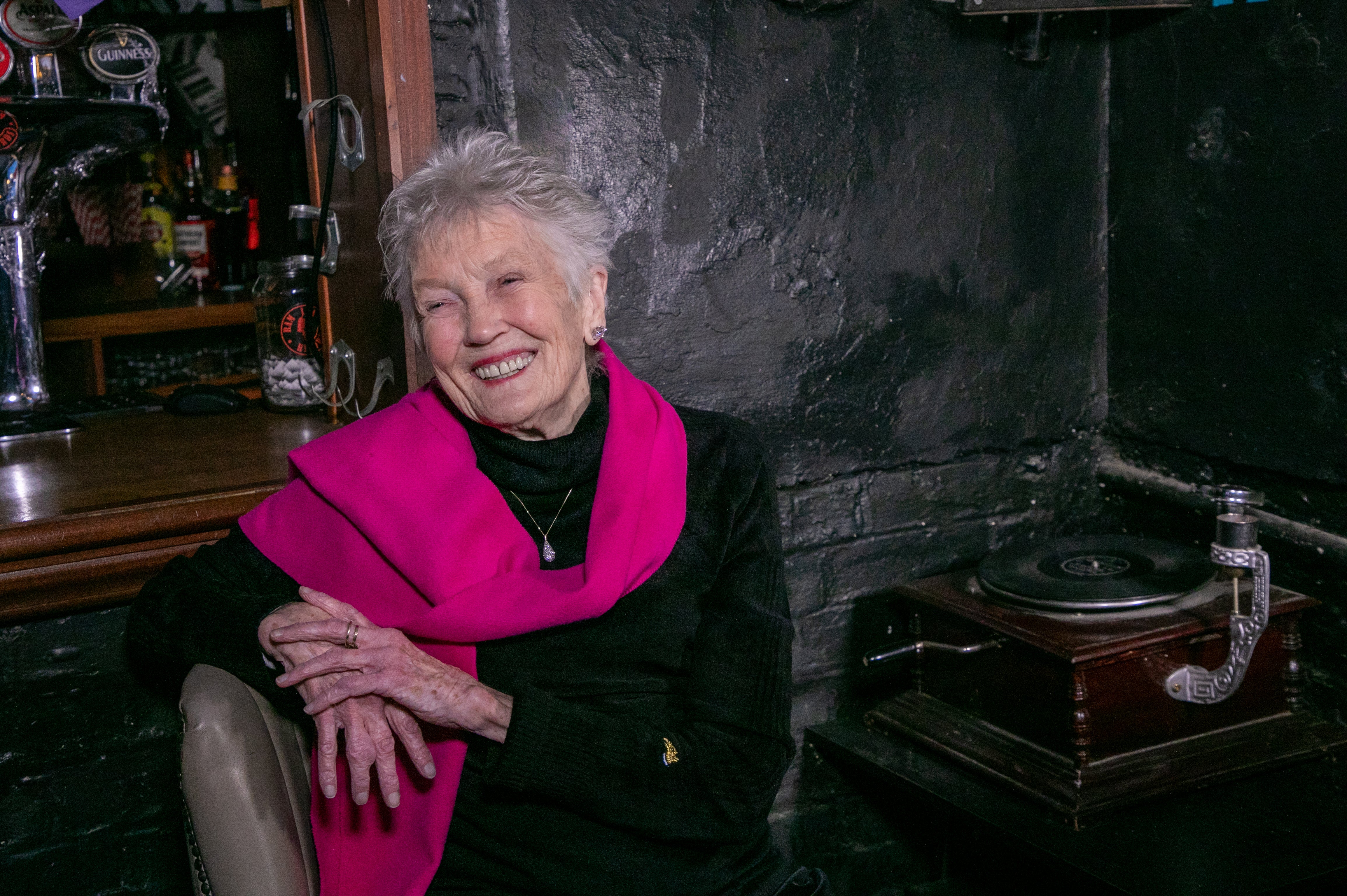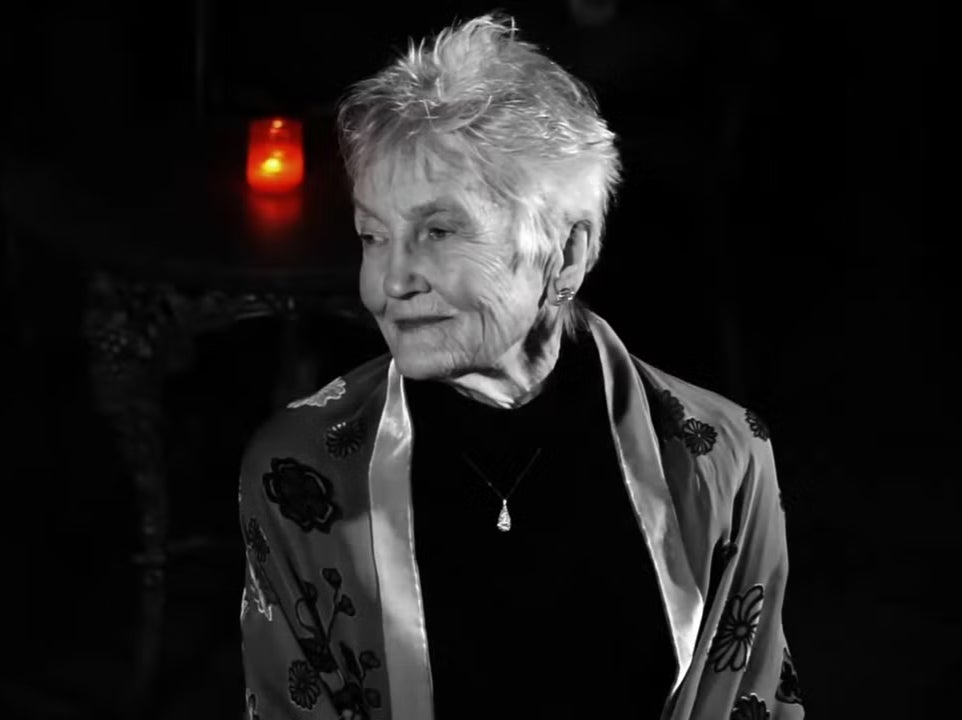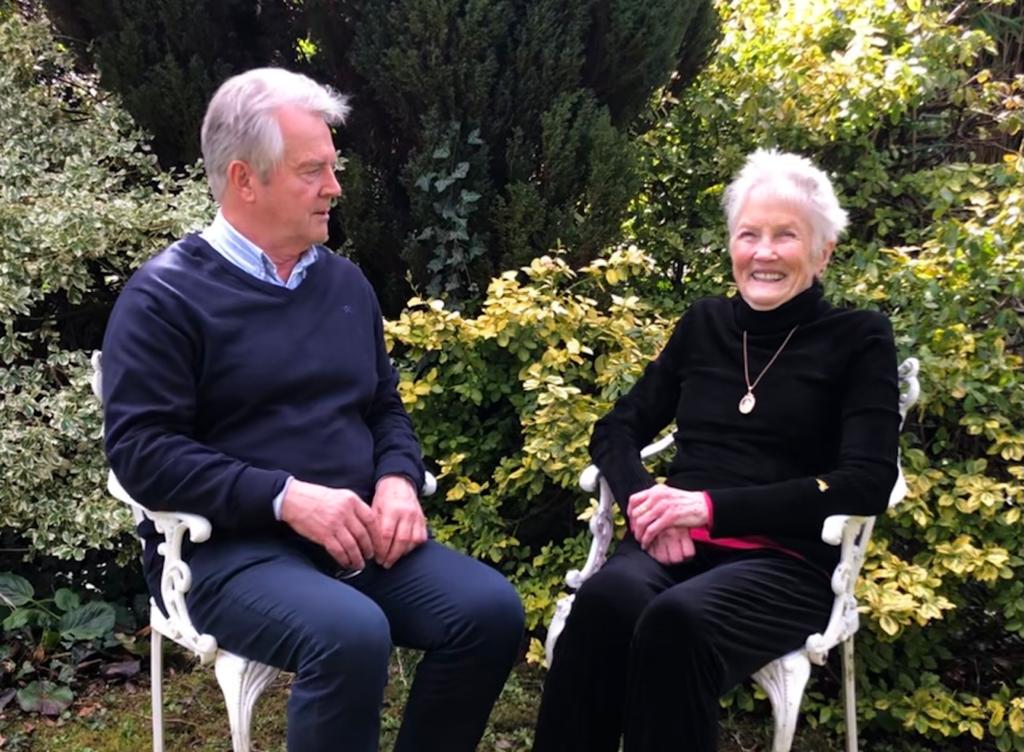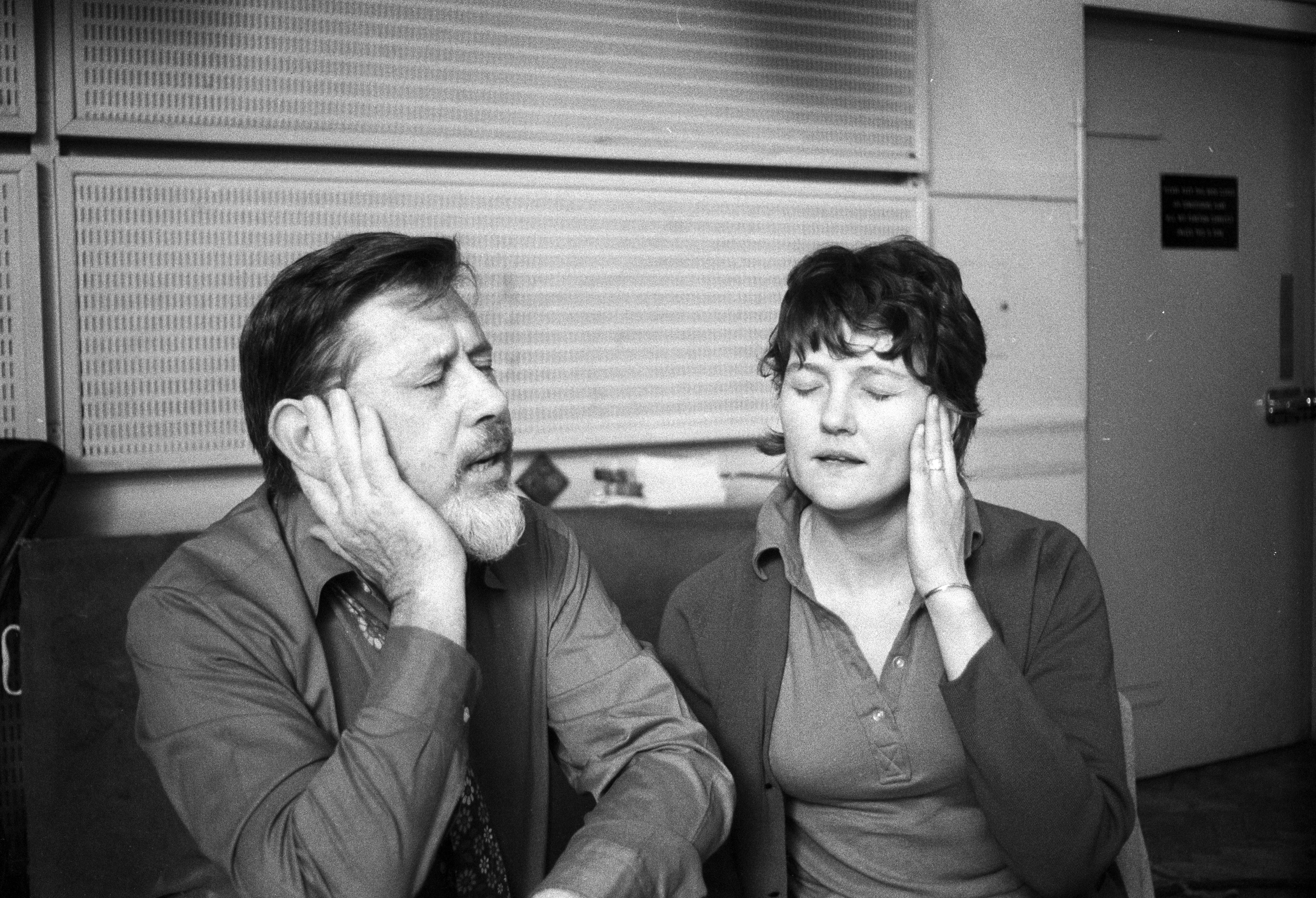Folk singer Peggy Seeger creates a new version of the famous love song inspired by her in 1957
Exclusive: Peggy has re-recorded the famous ‘The First Time Ever I Saw Your Face’, which was written for her by her late husband Ewan MacColl, reports Simon Walters


Your support helps us to tell the story
From reproductive rights to climate change to Big Tech, The Independent is on the ground when the story is developing. Whether it's investigating the financials of Elon Musk's pro-Trump PAC or producing our latest documentary, 'The A Word', which shines a light on the American women fighting for reproductive rights, we know how important it is to parse out the facts from the messaging.
At such a critical moment in US history, we need reporters on the ground. Your donation allows us to keep sending journalists to speak to both sides of the story.
The Independent is trusted by Americans across the entire political spectrum. And unlike many other quality news outlets, we choose not to lock Americans out of our reporting and analysis with paywalls. We believe quality journalism should be available to everyone, paid for by those who can afford it.
Your support makes all the difference.It has taken Peggy Seeger nearly 70 years to bring out a new version of the world famous love song inspired by and written for her.
Peggy, 87, first recorded “The First Time Ever I Saw Your Face” in 1957, when it was composed by her lover, fellow singer and activist Ewan MacColl. It was later made famous by Roberta Flack. Peggy stopped performing it in 1989 when MacColl, by then her husband, died.
“People would ask me to sing it at concerts, but I just kept breaking down,” she told me when I interviewed her at her home in Oxford. But she has now found novel inspiration to bring out a new version of the song.
Sitting opposite Peggy, sister of fellow American-born radical songwriter Pete Seeger, you can see why she was MacColl’s muse. The luminosity that bewitched him then is as bright now.
Peggy, who has lived in Britain for most of her life, is light as a bird, intense one minute, impish the next and confronts every topic with unflinching directness – from sex to socialism, two of her favourites.
She released her 24th solo album in 2021 and her pride and joy, the little red tour van in her driveway, suggests she is still not ready to give up life on the road.
To listen to Peggy’s new version, click here.
In a wide-ranging interview, she talked of how her love for her present female partner, Irene, is even deeper than her love for MacColl; how his poetic fire proved a damp squib their first night together – and how she wrote a song about KY jelly and sex to highlight “eco feminism”.
Peggy Seeger’s life is a freeze frame of contemporary social and cultural history of the western world: Woody Guthrie and blues legend Lead Belly were visitors to her musician parents’ home; brother Pete was interrogated in the US McCarthyite witchhunt; she and MacColl revived the British folk movement; defied the spooks by visiting the Soviet Union at the height of the Cold War; backed the 1980s miners’ strike; she entertained Fidel Castro in Havana; joined the Greenham Common demo against US nuclear weapons in Britain, wrote feminist anthem ‘I’m Gonna Be An Engineer’ – while raising three children.
Her love affair with Marxist MacColl, 20 years her senior, caused a scandal. When she fell pregnant with their first child, the second wife he was leaving for Peggy, Jean Newlove, was simultaneously pregnant with her second child by MacColl.
That second child was Kirsty MacColl, who sang “Fairytale in New York” with Shane McGowan of The Pogues before her tragic death in a boating accident in 2000.
We had met to talk about Peggy’s new recording of THAT song – and the very different version by Roberta Flack. Peggy has dedicated her new version to Flack who made it a hit – providing grateful Peggy with royalties and a ‘comfortable retirement.’
She felt no such warmth when she first heard Flack’s rendition. “I hated it,” she said emphatically. “The song is supposed to take off like a bird. Her version took away the flight.”

Peggy the purist has mellowed: “I was asking her to sing it like me and that is tremendously egotistical. I actually like her version now and play it with pleasure because I accept it is the way she saw it.”
She and Flack were to debate the song in a TV show, billed as ‘the voice meets the face’ – the “voice” being Flack’s and the “face” Peggy’s. It never happened. Peggy suspects Flack’s side chickened out. You can’t blame them. You’d think carefully before entering a cockpit with a pedigree bantam like Peggy.
She gives short shrift to up to the astonishing 500 plus other cover versions of the song and does an impromptu hilarious impression of the one she dislikes most, a galumphing country and western romp.
But she is fiercely proud that MacColl’s lyrics have endured – though Elvis Presley primly cut the “lay with you” line and swivelled his hips instead.

It annoys her when others change the final refrain, “I thought our joy would last for ever”, for “knew”.
She said: “You never know that. You think you will always be in love but it is not true. It changes.” She discovered that for herself. It is one of the most powerful aspects of her new version as she looks back over a life of love and loss.
Intriguingly, Peggy disclosed that the song is not entirely original: MacColl based it on a traditional Scottish folk song, “Friendless Mary.”
He fell “madly in love” head with her when she first came to the UK. It was not immediately reciprocated. “He was married with a child. That wasn’t my style. I wanted to swim and climb mountains. All he wanted to do was to go to bed.
“I just wished he’d stop bothering me. He was old enough to be my father. I was terrified. I used to wonder “what the hell does he see in me?” Sure, I could sing, play all these instruments, was young and good looking…”
A reasonable starting point, I joked. “… He chased me and I ran away back to the States. I wasn’t crazy in love with him.’ MacColl bombarded her with transatlantic phone calls, during one of which she told him she was making a radio show and the producers needed a love song.
“He sai, ‘How about this?’ and sang it (’The First Time…’) over the phone. I noted it down and said “that’ll do fine.’ He never sang it again – not once.”

Later, when they got together, she didn’t like performing it with him. “I felt bloody naked. I’m on stage next to the person who wrote it!” she said, her youthful indignation still vivid.
The song talks of ‘the first time ever I lay with you, I thought our joy would fill the earth.’ In reality there was more frustration than joy when MacColl finally got her into bed.
“It was disastrous,’ smiled Peggy. ‘He couldn’t manage it. He said he was so overcome with passion. Poor man was having a mid life crisis.” (MacColl made up for his slow start. Her memoir recalls how they subsequently had sex “anywhere, any time”, including in an alleyway in London against the wall of a house where Catherine of Aragon once stayed – until they were interrupted by a “policeman’s truncheon tapping on his shoulder”.
Peggy neither boasts nor apologises, saying she was “discomfited but compliant”. She adds wryly: “’The second time I saw your face’ doesn’t have the same ring.)”
Their first kiss was more successful. She remembers the exact time and place: 28 March 1956 in Chelsea, in MacColl’s parked “clapped-out Vauxhall with no brakes. He gave me a big kiss and my toes curled. It was marvellous.”

MacColl was “seasoned”, she added with an arched eyebrow. “Most of the boys I had been going with weren’t.” He was so desperate to win her over that when she resisted he told her: “Just give me two years of your life and then you can go and do what you want.”
“He didn’t tie me down – except we had a child,” she chuckled. “I stayed for 32 years!”
She has no regrets but freely admitted that before MacColl died she had fallen for someone else, Irene Pyper-Scott, also a musician.
For all her admiration and affection for MacColl, PyperScott, who is based in New Zealand, is the love of her life. “I loved Ewan, but I am deeply in love with Irene.”
They married in 2010 and have somehow conducted a successful relationship living on opposite sides of the world much of the time.
Peggy explained why, after all these years, she has brought out a new version of “The First Time…” “I couldn’t sing it after Ewan died. People would ask me to sing it and I would break down in the middle. I missed him and realised how much I loved him. It was too raw.”
People still ask her to sing it, she feels enough time has passed since MacColl’s death, and approaches it differently. Her voice has dropped an octave with age. Her new, sonorous lower register gives it a rich new timbre.

The rest of her explanation is Peggy’s combination of searing honesty and irreverence in a nutshell: “I sing the first verse as if I am Ewan falling in love with me. Because the first time I saw HIS face I thought he was the funniest looking guy I had ever seen, old fellow with red beard, black hair, about four inches shorter than me. I didn’t even look at him with any speculation!
“I sing the second verse to both my lovers (Ewan and Irene). I sing the third verse to Irene.” It leaves no doubt as to which of the two has given her the most satisfying love making.”
These days, “eco feminism” is Peggy’s main political passion. She has sympathy for Extinction Rebellion but questions their militant tactics. “When we were at Greenham Common it didn’t mean an ambulance didn’t get to the hospital because the road is blocked.”
She peppers her musical messages with wit. Her song, “Lubrication” combines concern over the environmental threat posed by oil with the use of KY Jelly in sex. “If you sing about ecology they turn off but if you sing about lubrication they don’t!” she giggles, with another twinkle in her sky-blue eyes.



Join our commenting forum
Join thought-provoking conversations, follow other Independent readers and see their replies
Comments